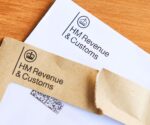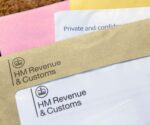Number of top-rate taxpayers hits record 1 million due to frozen bands | Personal Finance | Finance
The number of Brits paying the top rate of income tax has surged past 1 million as frozen thresholds pull hundreds of thousands of middle earners into the 45% band.
New figures obtained under freedom of information laws show that 720,000 people were dragged into the additional rate in 2024-25, taking the total to more than 1 million.
The 45% top rate of tax was introduced by the Tories in 2013 with a threshold of £150,000.
Then in April 2023, the Conservative chancellor, Jeremy Hunt, lowered the threshold to £125,140 – and froze it there until 2028.
If the threshold had risen with inflation, the 45% rate would only apply to earnings above £211,562 – sparing two-thirds of those now caught by it, according to analysis by Bowmore Financial Planning.
John Clamp, a chartered financial planner at the firm, said: “The way that this stealth tax has operated for 12 years means more and more people are being dragged into paying the highest rate of tax.
“When the 45% was introduced, it was meant for those on what were then the very highest salaries — the equivalent of over £210,000 today. Now, it’s hitting people earning almost £100,000 less than that.”
He told the FT that the policy was discouraging ambition and hard work: “It’s perhaps unsurprising productivity is stagnating.
“If extra work barely boosts take-home pay because of frozen tax bands, people are less inclined to work longer hours or push themselves — and that ultimately drags on the economy.”
Since 2022, income tax thresholds have been frozen rather than increased in line with inflation — a move that Treasury officials admit has boosted revenues through “fiscal drag” as pay rises push workers into higher bands.
The freeze is due to remain until 2028, though many expect Chancellor Rachel Reeves to extend it at the November 26 Budget as she faces a £20–£30 billion shortfall.
Asked on Monday whether she was prepared to break Labour’s manifesto pledge not to raise income tax rates, Reeves replied: “We have got to do the right thing.”
She added: “If you’re asking what comes first, the national interest or political expediency, it’s the national interest every single time for me and it’s the same for Keir Starmer too.”
The Treasury said: “The UK’s income tax system is highly progressive with an internationally high personal allowance. These figures relate to the previous government’s 2022 Autumn Statement.
“This government inherited the previous government’s policy of frozen tax thresholds and lowered additional rate threshold.”
Tax experts say Reeves may have little choice but to raise income tax or tighten thresholds further to meet her fiscal targets.
HMRC data show that a 1p rise in the basic rate would raise £8.2 billion, while 1p on the higher rate would bring in £2.1 billion and 1p on the additional rate just £230 million.
Gary Ashford, partner at Harbottle & Lewis, said it seems inevitable that increases in income tax are on the agenda.
“Whatever way you try and do the maths, you’re not going to get anywhere close to what she needs without it,” he said.









